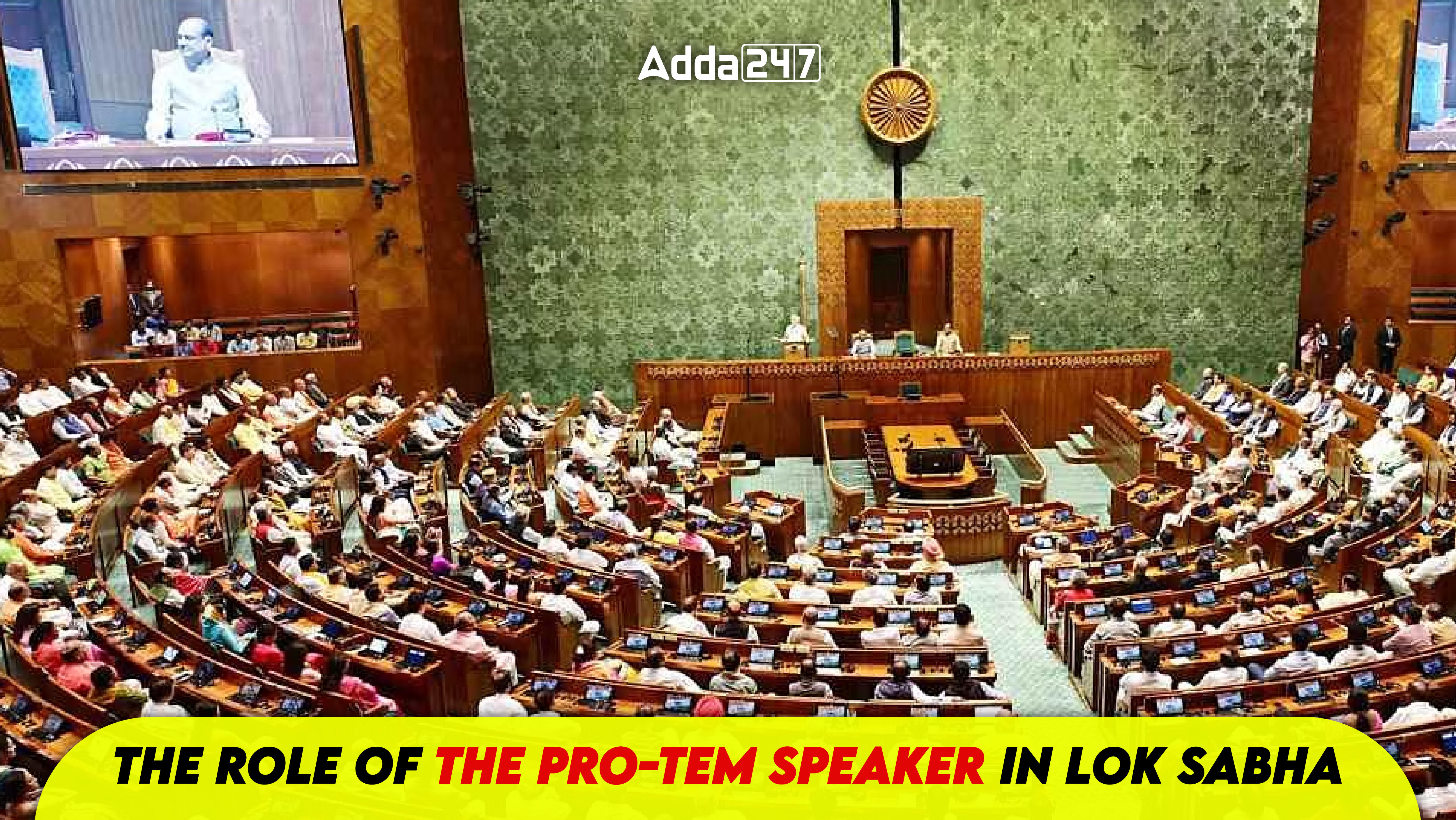Table of Contents
Bhartruhari Mahtab has been appointed and administered oath by the President of India as the pro-tem Speaker of the 18th Lok Sabha. The Pro-tem Speaker holds a significant yet often understated position within the Indian Parliamentary system. The Pro-tem Speaker’s role is not merely procedural but also symbolic. It represents continuity and stability within the legislative framework, ensuring that the transition between old and new legislative assemblies is smooth and orderly.
Meaning of Pro-tem Speaker
“Pro-tem” is a Latin term meaning “for the time being,” and it aptly describes the temporary nature of this role. While the Indian Constitution does not explicitly mention the term “Pro-tem Speaker,” the position is vital for the seamless functioning of the Lok Sabha, especially at the commencement of a new legislative session.
Appointment of the Pro-tem Speaker
The Pro-tem Speaker is appointed by the President of India under Article 95(1) of the Constitution, particularly when the Speaker and Deputy Speaker positions are vacant. Traditionally, the most senior member of the House, in terms of years served, is chosen for this role, although there have been exceptions. This seniority ensures that the Pro-tem Speaker brings a wealth of experience to the position, facilitating the initial proceedings of the House.
Duties of the Pro-tem Speaker
One of the primary responsibilities of the Pro-tem Speaker is to preside over the first sitting of the newly elected Lok Sabha. During this session, the Pro-tem Speaker administers the oath of office to the newly elected Members of Parliament. This is a critical function, as it formally inducts the members, allowing them to participate in legislative activities.
In addition to administering oaths, the Pro-tem Speaker oversees the election of the new Speaker and Deputy Speaker. This includes conducting the vote and ensuring that the process adheres to parliamentary procedures. The Pro-tem Speaker also has the authority to conduct a floor test, if required, to verify the majority support for the ruling government.
Historical Context and Evolution
The concept of the Pro-tem Speaker has its roots in the pre-independence era. The Government of India Act, 1919, introduced the positions of Speaker and Deputy Speaker, then referred to as President and Deputy President. This nomenclature continued until the Government of India Act, 1935, which renamed these positions to Speaker and Vice President. Post-independence, the Indian Constitution streamlined these roles, solidifying the importance of the Pro-tem Speaker in the Parliamentary system.
Controversies and Judicial Review
The appointment of the Pro-tem Speaker can sometimes be contentious. For instance, the recent appointment of Bhartruhari Mahtab as the Pro-tem Speaker for the 18th Lok Sabha was opposed by some members of the opposition, who argued that the senior-most member, K. Suresh, was overlooked due to his Dalit background. Despite such controversies, the Constitution provides a clear framework for the Governor’s discretion in these appointments, although this discretion is not absolute and can be subject to judicial review. Courts can examine the Governor’s decisions if they appear arbitrary or influenced by extraneous considerations.
Conclusion
The Pro-tem Speaker is a crucial pillar in the architecture of India’s Parliamentary democracy. By overseeing the initial proceedings of the Lok Sabha, administering oaths, and facilitating the election of the Speaker and Deputy Speaker, the Pro-tem Speaker ensures the legislative body functions smoothly from the outset. This role, while temporary, is foundational in maintaining the integrity and continuity of Parliamentary procedures. As such, the Pro-tem Speaker is indispensable to the democratic process, embodying the principle that effective governance begins with orderly and lawful proceedings.



 TSPSC Group 1 Question Paper 2024, Downl...
TSPSC Group 1 Question Paper 2024, Downl...
 TSPSC Group 1 Answer key 2024 Out, Downl...
TSPSC Group 1 Answer key 2024 Out, Downl...
 UPSC Prelims 2024 Question Paper, Downlo...
UPSC Prelims 2024 Question Paper, Downlo...




